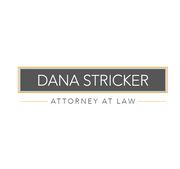Advice to Gym Owners & Trainers Regarding Waivers

People have been exercising since the early 19th Century. Since that time, many different forms of exercise have gained in popularity. Gyms have been popular for many years, as have group fitness classes. To protect themselves from legal liability, gym owners often have participants sign Fitness Waivers. The typical Fitness waiver includes the following type of language:
“You acknowledge that you have carefully read this waiver and fully  understand that it is a release of liability. You expressly agree to release and discharge the gym, trainer and/or instructor from any and all claims or causes of action and you agree to voluntarily give up or waive any right that you may otherwise have to bring a legal action against the gym, trainer and/or instructor for personal injury or property damage.”
understand that it is a release of liability. You expressly agree to release and discharge the gym, trainer and/or instructor from any and all claims or causes of action and you agree to voluntarily give up or waive any right that you may otherwise have to bring a legal action against the gym, trainer and/or instructor for personal injury or property damage.”
These Fitness Waivers are an agreement between the participant and the facility wherein the participant waives their right to sue if they are injured.
In New York, General Obligations Law section 5-326 addresses the issue of these waivers.
General Obligations Law section 5-326, states in part:
“ Every covenant, agreement or understanding in or in connection with, or collateral to, any contract, membership application, ticket of admission or similar writing, entered into between the owner or operator of any pool, gymnasium, place of amusement or recreation, or similar establishment and the user of such facilities, pursuant to which such owner or operator receives a fee or other compensation for the use of such facilities, which exempts the said owner or operator from liability for damages caused by or resulting from the negligence of the owner, operator or person in charge of such establishment, or their agents, servants or employees, shall be deemed to be void as against public policy and wholly unenforceable.” (emphasis added)
There are, however, exceptions to the general rule articulated in the statute. If a fitness provider (or sports or recreation facility owner) can show that:
1) No fee was charged to the individual signing the waiver;
2) The fee that was charged was not for the use of the facility;
3) The activity that the participant engaged in was educational, not for recreation;
4) The facility itself was not a place of amusement or recreation;
5) When the equipment used was rented and then removed;
6) When the individual who signed the waiver was not a “user” of the facility;
7) When the individual who signed the waiver was not the individual who paid for the use of the facility;
8) When the waiver protected against inherent risks and not negligence,
9) When this statute conflicts with another statute; or
10) When the waiver involved the boarding of a horse in a stable.
GOL 5-326 will not apply.
Therefore, the prudent facility owner should consult with an attorney to understand their rights and liabilities, and to draft a waiver that will protect them to the extent possible.
If you should need additional information or legal advice regarding waivers, please contact Dana Stricker at 914-588-0651. The Law Office of Dana Stricker, PLLC is located in Bronx, NY and has over 30 years of experience. Visit our website for additional details.
About the Business
Have a question? Ask the experts!
Send your question

